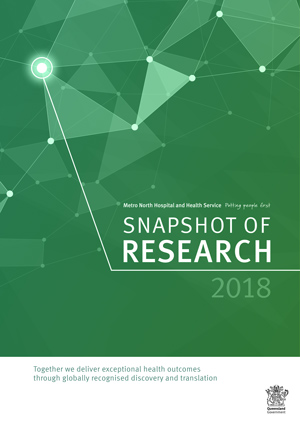Family therapy for adults with eating disorders
Family-based therapy is an important element in treating adolescents with eating disorders, but there is not a lot of literature on the benefits for adults receiving treatment.
Senior Social Worker for the Queensland Eating Disorder Service (QuEDS) Rebecca Olling has been exploring the experience of adult participants having family or friends involved in their treatment while in the Day Program.
“Family-based therapy is the evidence-based treatment for adolescents with an eating disorder, and the literature often extends to the experience of having family involved in their treatment,” Ms Olling said.
“However, there is less literature focusing on how family involvement is experienced for adults while receiving eating disorder treatment.”
As part of her Masters in Mental Health (Family Therapy), Rebecca collected data to discover how participants experience family involvement in their current treatment, including what their hopes are for future family involvement.
“This is important research as the National Eating Disorder Agenda outlines the importance of inclusiveness of family in eating disorder treatment,” Ms Olling said.
“It is also important to gather information as to how family involvement is experienced by participants.”
Semi-structured interviews completed by a research assistant at QuEDS were used to gather the data exploring the participants’ experience.
“Although questions were pre-determined they were also open-ended, allowing exploration of what the participants were thinking, feeling and doing,” Rebecca said.
As this research is part of a larger study evaluating the QuEDS Day Program only data pertaining to family and family involvement was analysed for this study.
As there are limitations to the study, including only obtaining the views of patients and the small sample size, results are unlikely to be representative of the experience of family involvement for adults in an eating disorder Day Program or other treatment setting.
When the data is analysed from a family therapy lens, results indicate that although sometimes challenging when unplanned, family involvement in adult eating disorder treatment is considered desirable and helpful.
“This research has allowed our workforce to gather data on how our patients experience family involvement in their treatment,” Ms Olling said.
“We know from this research that participants find family involvement extremely helpful in their recovery.
“Although participants reported finding support around meal times desirable, we also found that when carers or loved ones attempted to intervene or communicate about things at meal times in an unplanned way, it caused stress for the participants.
“This study also found that planning for meals, whether it is at home or out socially was considered helpful in their recovery.”
Ms Olling said there is also evidence that engaging family in facilitated sessions with treatment staff, is considered positive and helpful over written information only from the participant’s point of view.
“The data from this study also found that participants had positive views on their loved ones connecting with other parents and carers when this opportunity was presented,” Ms Olling said.
“Overall, the study outlines the importance of including family members and other support people in the treatment of adults with eating disorders, regardless of their level of independence from their family of origin.”


